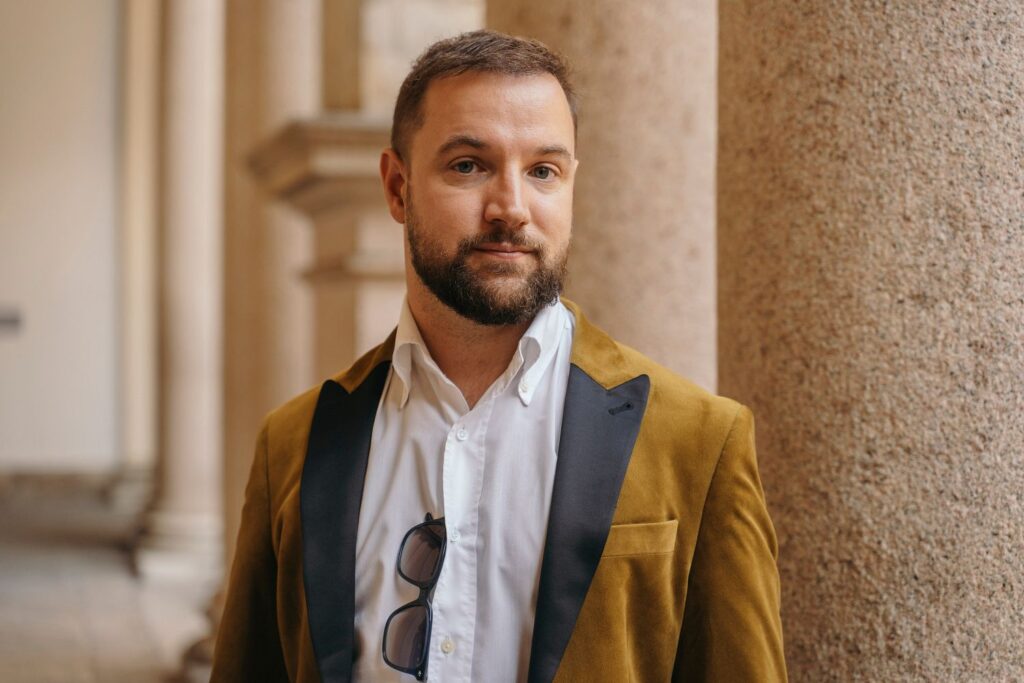Brand storytelling is changing how luxury brands connect with people and it is so much more than listing product details or company history. Here is the wild part. Studies show that consumers do not just remember stories, they actually experience them—brain scans reveal emotional and cognitive responses just like real-life events. You might think that luxury branding is all about exclusivity and price but researchers have found that the secret sauce is in weaving stories that spark deep emotional attachment and turn products into icons of identity.
Table of Contents
- What Is Brand Storytelling And Its Importance?
- Why Brand Storytelling Matters In Luxury Industries
- How Brand Storytelling Connects With Emotions
- Key Concepts That Make Brand Storytelling Effective
- Real-World Examples Of Successful Brand Storytelling
Quick Summary
| Takeaway | Explanation |
|---|---|
| Authenticity is key in storytelling. | Genuine narratives help consumers connect with the brand’s true essence and values. |
| Emotional connection transforms experiences. | Crafting stories that evoke feelings enhances engagement beyond mere product promotion. |
| Consistent messaging is crucial. | A unified narrative across all brand touchpoints strengthens brand identity and loyalty. |
| Luxury storytelling emphasizes heritage and craftsmanship. | Highlighting origins and unique philosophies establishes meaningful connections with consumers. |
| Narrative transportation theory enhances brand perception. | Immersive storytelling engages consumers emotionally, making brand experiences feel more significant. |
What is Brand Storytelling and Its Importance?
Brand storytelling represents a sophisticated marketing approach that transforms traditional promotional strategies into compelling narrative experiences. At its core, brand storytelling goes beyond simply presenting product features or company achievements. It weaves an intricate narrative that connects with consumers on an emotional and psychological level, creating deep resonance and meaningful engagement.
Defining Brand Storytelling in Luxury Contexts
In the luxury sector, brand storytelling is particularly powerful. It is not just about selling a product but crafting an immersive experience that communicates the brand’s heritage, values, and unique identity. Learn more about luxury brand narrative techniques, which help transform consumer perceptions from transactional interactions to meaningful connections.
The fundamental elements of effective brand storytelling include:
- Authenticity: Genuine narratives that reflect the brand’s true essence
- Emotional Connection: Stories that evoke feelings and personal resonance
- Consistent Messaging: Unified narrative across all brand touchpoints
The Psychological Impact of Brand Narratives
According to research from the Journal of Information Technology Applications and Management, brand storytelling significantly influences consumer engagement by tapping into fundamental psychological mechanisms. When consumers encounter a well-crafted brand story, they do not just hear information they experience a narrative that triggers emotional and cognitive responses.
Luxury brands, in particular, leverage storytelling to communicate exclusivity, craftsmanship, and heritage. By sharing stories about their origins, design philosophies, and creative processes, these brands create an intangible yet powerful connection that transcends mere product characteristics. This approach transforms consumer perception from viewing a product as a mere commodity to experiencing it as a symbol of aspiration and personal identity.
To clarify the essential elements that underpin powerful luxury brand storytelling, the following table defines key concepts and their roles in creating lasting consumer connections.
| Concept | Definition | Role in Luxury Brand Storytelling |
|---|---|---|
| Authenticity | Genuine narratives that reflect the brand’s true essence | Builds trust and aligns the brand with consumer values |
| Emotional Connection | Stories that trigger emotional and psychological responses | Cultivates deep engagement and loyalty |
| Consistent Messaging | Unified narrative across all brand touchpoints | Strengthens brand identity and fosters long-term relationships |
| Heritage and Craftsmanship | Highlighting origins, skills, and unique philosophies | Adds depth and distinction to the brand |
| Narrative Transportation | Immersive storytelling that causes consumers to experience the story personally | Enhances perception and makes brand experiences more memorable |
Why Brand Storytelling Matters in Luxury Industries
Brand storytelling has emerged as a critical strategic approach for luxury industries, transcending traditional marketing techniques by creating profound connections with discerning consumers. Unlike standard promotional strategies, brand storytelling in luxury contexts represents a nuanced art form that communicates deeper meaning and emotional value.
Creating Emotional Value Beyond Product Features
In luxury markets, consumers do not merely purchase products they invest in experiences and narratives. Explore advanced luxury brand narrative strategies that transform consumer interactions from transactional exchanges to meaningful emotional journeys. The significance of brand storytelling lies in its ability to:
- Differentiate brands in a saturated marketplace
- Create memorable consumer experiences
- Build long term brand loyalty and emotional attachment

Psychological Foundations of Narrative Marketing
According to research published in the Tourism Management journal, narrative transportation theory explains why brand stories are so compelling. When consumers become immersed in a brand’s narrative, they experience a psychological state where the story becomes more important than critical evaluation, leading to stronger brand perception and emotional engagement.
Luxury brands leverage this psychological mechanism by crafting intricate narratives that highlight heritage, craftsmanship, and unique brand philosophy. These stories transform products from mere objects into symbols of aspiration, culture, and personal identity. By communicating a rich, authentic narrative, luxury brands create an intangible yet powerful connection that transcends traditional marketing approaches, positioning themselves as creators of experiences rather than simple product manufacturers.
How Brand Storytelling Connects with Emotions
Emotional connection represents the critical bridge between luxury brands and their audiences, transforming passive consumer interactions into deeply meaningful experiences. Brand storytelling serves as the sophisticated mechanism through which these profound emotional connections are established and nurtured.
The Neurological Foundations of Emotional Engagement
Narrative experiences trigger complex neurological responses that go far beyond traditional marketing approaches. Discover advanced brand narrative workflows that leverage psychological insights to create compelling emotional journeys. The emotional connection process involves several intricate mechanisms:
- Neurochemical responses triggered by compelling narratives
- Activation of mirror neurons during storytelling
- Psychological identification with brand characters and experiences
Mapping Emotional Resonance in Luxury Contexts
According to research published in SAGE Open, luxury brand storytelling operates through sophisticated emotional mapping. Consumers do not simply hear stories they emotionally inhabit them. This immersive experience transforms brand narratives from mere communication into powerful psychological encounters that resonate deeply with individual aspirations and self perception.
Luxury brands strategically construct narratives that tap into fundamental human desires for belonging, significance, and personal transformation. By creating stories that transcend product specifications and delve into emotional landscapes, these brands establish connections that are simultaneously personal and universal. The most effective brand stories do not just describe experiences they invite consumers to imagine themselves within a larger, more meaningful narrative ecosystem.
Key Concepts that Make Brand Storytelling Effective
Brand storytelling transcends traditional marketing by creating intricate narrative experiences that engage consumers on multiple psychological levels. Understanding the core mechanisms that drive narrative effectiveness becomes crucial for luxury brands seeking to establish meaningful connections with their audience.
Authenticity as a Fundamental Narrative Principle
Learn advanced storytelling techniques for luxury brands that prioritize genuine, compelling narratives. Authenticity serves as the cornerstone of effective brand storytelling, requiring brands to communicate their unique essence with transparency and emotional integrity. This involves:
- Maintaining consistent brand values across all narrative elements
- Revealing genuine brand origins and philosophical foundations
- Creating narratives that reflect actual brand experiences
Psychological Mechanisms of Narrative Engagement
According to research published in PLOS ONE, effective brand storytelling operates through sophisticated psychological mechanisms. These mechanisms transform narratives from simple communication channels into powerful emotional experiences that resonate deeply with consumer identities.
Luxury brands excel by constructing multi-dimensional narratives that simultaneously communicate product value and emotional aspiration. The most compelling stories do not merely describe products they invite consumers to imagine transformative experiences. By integrating elements of personal mythology, cultural symbolism, and individual identity, these narratives create an immersive world where consumers see themselves as protagonists rather than passive observers.
This table summarizes the psychological mechanisms mentioned in the article that make luxury brand storytelling particularly engaging and effective for consumers.
| Psychological Mechanism | Description | Impact on Consumer Engagement |
|---|---|---|
| Neurochemical Responses | Storytelling triggers dopamine, oxytocin, and other emotional responses in the brain | Creates memorable, emotionally charged reactions |
| Mirror Neuron Activation | Consumers neurologically identify with characters and scenarios in the story | Fosters empathy and personal resonance |
| Psychological Identification | Consumers see themselves within the brand’s narrative | Strengthens brand attachment and loyalty |
| Narrative Transportation | Being fully immersed and “transported” by the story | Reduces critical evaluation, increases buy-in |
| Personal Mythology | Brand becomes part of the consumer’s own sense of self and aspiration | Enhances the brand’s role in individual identity |
Real-World Examples of Successful Brand Storytelling
Brand storytelling transforms abstract marketing strategies into tangible, memorable experiences that resonate deeply with consumers. By examining successful implementations, luxury brands demonstrate the profound potential of narrative-driven communication strategies that transcend traditional promotional techniques.
Heritage and Legacy Narratives
Explore advanced brand storytelling methodologies that illuminate how top luxury brands craft compelling narratives. Successful brand storytelling often revolves around communicating rich historical contexts and generational legacies. Key characteristics of effective heritage narratives include:
- Highlighting founder’s vision and original motivations
- Documenting historical milestones and transformative moments
- Connecting past achievements with contemporary brand identity

Narrative Strategies in Luxury Contexts
According to research exploring brand storytelling in the luxury sector, brands like Cartier and Burberry excel by constructing multilayered narratives that blend emotional resonance with historical authenticity. These brands do not merely sell products they curate immersive experiences that invite consumers into elaborate, meticulously crafted brand universes.
The most compelling brand stories transform mere commercial artifacts into symbolic representations of culture, aspiration, and personal identity. By weaving intricate narratives that connect individual consumer experiences with broader cultural meanings, luxury brands create emotional landscapes that transcend traditional marketing boundaries. These stories become powerful vehicles for communication, turning brand interactions from transactional exchanges into profound, meaningful connections that resonate across generations.
Elevate Your Luxury Brand Story with Proven Psychological Insights
Do you struggle to turn your luxury brand’s features into stories that truly connect? The article explores how emotional connection and authenticity are essential in luxury brand storytelling, but many brands still fail to translate these theories into real customer loyalty. If you are facing the challenge of building an emotional bond and creating memorable narratives that resonate, it is time to move beyond generic strategies.
Explore Personal Branding Strategies that are designed especially for the luxury sector with a strong foundation in human behavior and market psychology.

Now, with Corrado Manenti’s expertise in fashion and luxury consulting, you can access strategies backed by practical experience and psychological research. Discover how to transform your brand identity into powerful stories that set you apart and drive meaningful engagement. Visit Corrado Manenti’s website now to unlock methods that deliver real results for premium brands. Start building your unique narrative and see the impact for yourself.
Frequently Asked Questions
What is brand storytelling in the luxury sector?
Brand storytelling in the luxury sector goes beyond traditional marketing by creating immersive narratives that convey a brand’s heritage, values, and unique identity, emotionally connecting with consumers.
Why is emotional connection important in luxury brand storytelling?
Emotional connection is vital because it transforms consumer interactions from transactional to meaningful experiences, cultivating brand loyalty and stronger engagement.
How does authenticity influence brand storytelling?
Authenticity is a key principle in brand storytelling, requiring brands to communicate their true essence transparently, which helps build trust and emotional resonance with consumers.
What psychological effects do brand narratives have on consumers?
Brand narratives can create a psychological state where consumers become emotionally invested in the story, leading to enhanced perception of the brand and deeper engagement beyond product evaluation.



